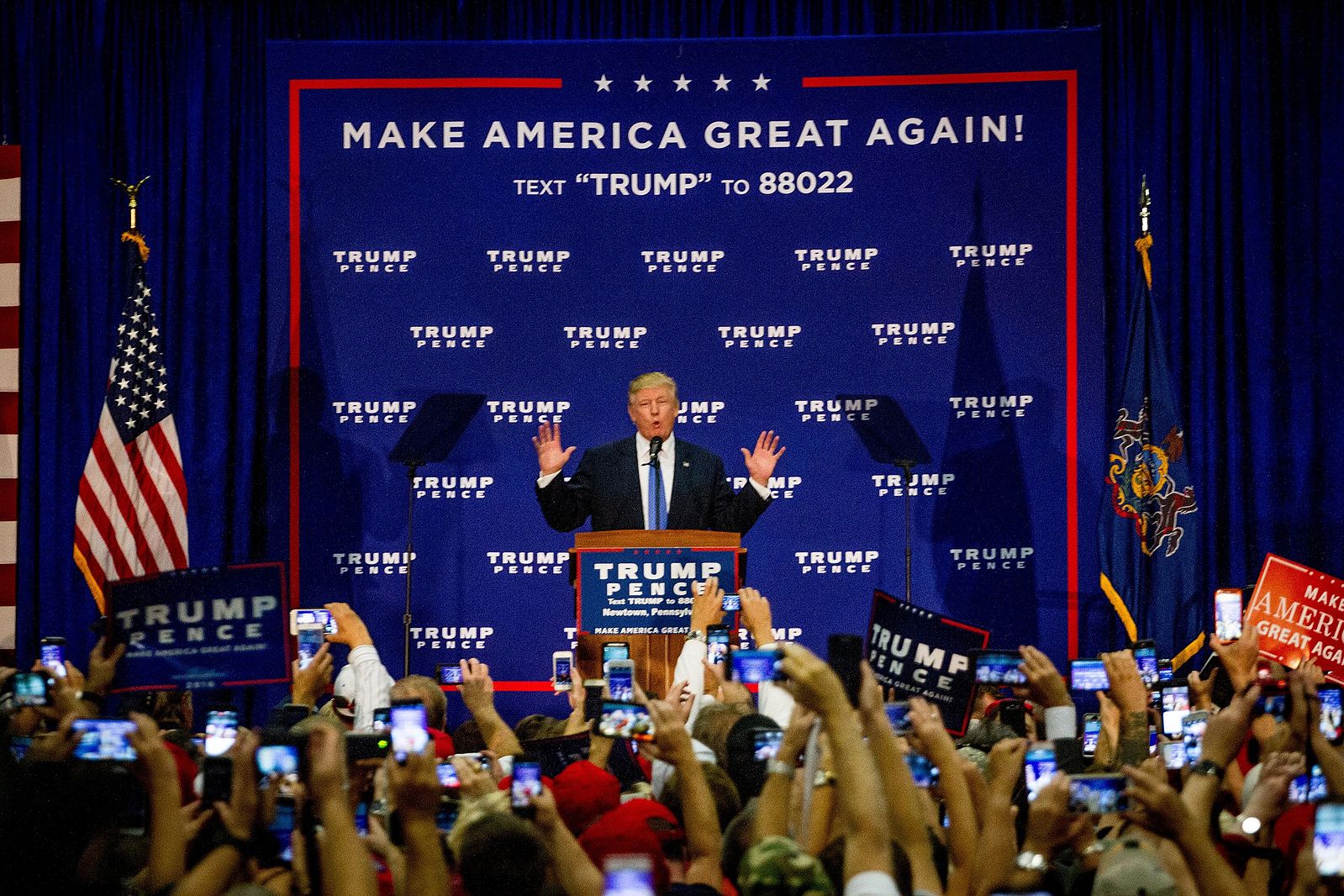“America’s national trauma, rooted in our history but dramatically exacerbated by the impact of current events and the Trump administration’s corrupt and immoral policies. . . . Whether it manifests itself in rising levels of rage and hatred, or hopelessness and apathy, the stress of living in a country we no longer recognize has affected all of us. America is suffering from PTSD.”
—Mary Trump, The Reckoning (2021)
In a recent New York Times essay, the conservative columnist Ross Douthat tried to explain—and distance himself from—the lingering view among his fellow Republicans that an election demonstrably free of fraud was somehow stolen.
Describing why people might be susceptible to Trump’s claims of election fraud, Douthat suggests that “being open to the possibility of conspiracies is itself extremely normal and commonplace.” And he offers insights into who the believers might be: “extremely smart people whose self-identification is bound up in constantly questioning and doubting official forms of knowledge,” and people on the right who perceive the Covid-19 era as “a crisis that seemed to be deliberately exploited for revolutionary purposes by politicians and activists of the left.”
It’s hard to imagine that these extremely smart individuals comprise any significant portion of the 74 million Americans who apparently felt on Election Day that four more years of Donald Trump would be a good idea. But Douthat is at least partially right about people being open to conspiracies, especially when they feed, or feed off, your point of view.
In 2004, I was for anyone but George W. Bush, at the time surely the least qualified incumbent in American political history, a distinction that has since been effortlessly surpassed by the incumbent and now outgoing president Trump.
I was open to the idea that the automated vote-counting machines newly introduced in Ohio by the Diebold Corporation could have been manipulated to give Bush a crucial state in his win over John Kerry. Wally O’Dell, the Diebold chairman, was a big Republican donor and had reportedly been a guest at the Bush ranch. There were legitimate concerns about the reliability of the Diebold machines (there still are). Discrepancies with exit polls, and problems with numbers of registered voters relative to actual vote tallies were detected and reported in the responsible media after the election, and in their report, a Democrat-led House Judiciary Committee inquiry confirmed the suspected fraud.
These kinds of questions continue to plague U.S. elections. Analysis of the vote count in the recent Senate contest in Kentucky between Mitch McConnell and Amy McGrath has surfaced numerous instances of unexplained discrepancies, as documented in the valuable DC Report, edited by the Pulitzer Prize–winning David Cay Johnston. Kentucky deploys voting machines owned and managed by Election Systems and Software, whose voting technology was plagued with mishaps and errors in previous election cycles. Given the known vulnerability of these election systems to foreign and domestic hacking schemes, and the recent revelations of massive and presumptively Russian hacking of the U.S. national security networks, there are ample reasons to investigate the Kentucky outcome.
Trump’s reelection team knew months ago there was growing public anger over his mismanagement of the pandemic. Plan A was straightforward enough: lie to the public and downplay the severity of the virus. But reality intruded, the infection rate skyrocketed, hundreds of thousands died, and the president’s reckless and self-serving strategy backfired.
Plan B was more complicated: warn his base there would be vote-rigging, work to degrade the operational functionality of the Post Office (which would be responsible for delivering millions of mail-in ballots), park $700 million in election contributions in a shell LLC run by his children and their spouses that did not carry the same disclosure obligations as a normal federal campaign committee, and pack the Supreme Court with judges who would give preference to executive privilege and indulge his false claims of election fraud.
Given the considerable numbers of Trump voters, the dishonest and unrelenting White House drumbeat that the election was stolen, and the execrable failure of Republican leaders to counter it, or even to acknowledge Biden’s decisive win, it’s not at all surprising that millions of Trump voters continue to believe he was cheated. More surprising is the fact that so many journalists keep asking why his supporters still think that way.
Why would people who laughed approvingly when Trump mocked the disabled, applauded the pardon of Joe Arpaio, and cheered when Rush Limbaugh received the Presidential Medal of Freedom suddenly decide to jump ship?
These are many of the same people who sneer at mask-wearing neighbors (how did the mask issue become such a symbol of personal freedom—don’t these same folks willingly comply when restaurants and diners ask their customers to wear shoes and t-shirts?). Some show up at social justice rallies to pick fights with black protesters; and apparently many believe that the world is run by a cabal of largely Democratic, Satan-worshipping pedophiles who, among other things, are plotting against Trump while operating a global child sex-trafficking ring.
These voters ignored the voluminous evidence that the 2016 Trump campaign colluded with the Russians; discounted testimony that he lied under oath, that he lied to his bankers and cheated on his taxes. They dismissed the charge that Trump tried to bribe a foreign head of state to investigate his political rival (for which he was impeached). And for years, they’ve absorbed all the other nonsense Trump has been peddling since he first showed up as a barker on the World Wide Wrestling Circuit and played a fake businessman on reality TV.
So after all this time spent in denial, having enabled Trump to deform their government and their democracy to a level of dysfunction where both are now barely recognizable, what bolt of lightning could possibly spur them overnight to develop an independent, critical perspective and conclude that Trump’s public dissembling on the election results and these Hail Mary election fraud lawsuits are just more lies, and cover for another con?
I swing between alarm at our vulnerability to the corruption and lawlessness of a rogue executive and trust in a process that will eventually ease him out of 1600 Pennsylvania Avenue and into a courtroom on Foley Square.
To get there though, the country has had to hold its breath and navigate the successive stages of election certification prescribed by the Electoral College. Alexander Hamilton reasoned that the Electoral College would ensure the office of president would never fall into the hands of any candidate “who is not in an eminent degree endowed with the requisite qualifications.” The Electoral College, he argued, would ensure that mere “talents for low intrigue and the little arts of popularity” would never be sufficient “to gain the esteem and confidence of the whole Union.”
It was clear in 2016—after Hillary Clinton won the popular vote by nearly three million but lost to Trump by 304–227 in the Electoral College—that the system had failed. Too much influence was vested in winner-take-all states and swing states at the expense of the national will, and Hamilton’s confidence that the presidency would be filled with “characters pre-eminent for ability and virtue” was upended from the moment Trump placed his hand on the Bible.
Hamilton understood the danger posed by rogue conduct within the system. “Nothing,” he wrote in the Federalist Papers, “was more to be desired than that every practicable obstacle should be opposed to cabal, intrigue, and corruption.”
He was also wary of the desire of foreign powers “to gain an improper ascendant in our councils.” Hamilton’s 19th-century apprehension grew more prescient with each day Trump was in office, as he ignored, denied, and covered up well-documented Russian encroachment in American domestic politics. And after the largest and most damaging breach of U.S. national security in history was attributed to Russian espionage, the president first greeted the news without comment, and then offhandedly suggested it had probably been China. Aides report he has not read his national security briefings since October, and in the heat of an unprecedented national security crisis, the jaded press was left to speculate that Trump must not have wanted to offend the largest note-holders in his overleveraged financial empire.
Biden won the recent national election by more than seven million votes, but only narrowly prevailed in the Electoral College by an aggregate of 47,000, rekindling calls for reform. Still, it’s tempting to conclude that the battered Constitution held—as eminent scholars of election law like Jerry Goldfeder predicted it would. The principled Republican judicial appointees in the swing states who dismissed the president’s frivolous lawsuits, and the election officials from his own party who survived his furious attacks on their character were, at least for one shining month, elements of a durable and resilient system.
Watching this administration gradually unravel in its final, fetid weeks, it’s clear that the president of the United States has abandoned the people’s business. His public calendar is empty. Yet his failed coup has moved to arguably its most lethal stage, sabotage.
Trump and his staff are hog-tying the incoming Biden administration, cutting off transition debriefings, amassing 11th-hour lists of politically motivated pardons, and destroying public documents. They are planning a counterrally on Inauguration Day and giving the greenlight to every branch of the federal government to roll back the clock. As compiled by ProPublica, Trump is loosening Obama-era rules designed to protect workers, the environment, and public health. He is reducing efficiency standards for shower heads and laundry machines. He is making it harder to emigrate, harder to request asylum.
The Trump administration is promulgating rules that release pension managers from having to consider social and environmental impacts when choosing investments. He is pressing ahead with more oil and gas exploration in the National Petroleum Reserve in Alaska, a habitat for bears, musk oxen, caribou, and birds. And despite depressed energy prices and low demand, he is opening the way for drilling in the Arctic National Wildlife Refuge, sacred ground of indigenous hunting communities in northeast Alaska.
Trump and Barr accelerated the pace of federal executions, putting more prisoners to death than the 10 previous presidents combined. Isaac Arnsdorf reports in ProPublica that Trump administration officials “gave public explanations for their choice of which prisoners should die that misstated key facts from the cases. They moved ahead with executions in the middle of the night. They left one prisoner strapped to the gurney while lawyers worked to remove a court order. They executed a second prisoner while an appeal was still pending, leaving the court to then dismiss the appeal as “moot” because the man was already dead. They bought (lethal) drugs from a secret pharmacy that failed a quality test. They hired private executioners and paid them in cash.” And they’ve made a rules change that paves the way, grotesquely, for the use of firing squads because of a shortage of the chemicals employed in injections.
Meanwhile, the president’s lawyers continue to travel the countryside like a carney show, racking up losses in court after court in failed attempts to advance their novel argument—fraud without evidence. The legal squad is composed of fringe conspiracy theorists, religious conservatives, and at least one attorney reportedly under federal investigation—the risible Rudolph Giuliani. (According to The New York Times, federal prosecutors have been investigating Giuliani for his role in falsely smearing and undermining Marie L. Yovanovitch, the respected U.S. ambassador to the Ukraine, whom Trump recalled because she wouldn’t cooperate with the president’s efforts to tie the Biden family to alleged wrongdoing in that country. Yovanovitch recently received the PEN/Benenson Courage Award for speaking out against corruption in the Trump administration.)
Consider the record of 17 lawsuits filed by Team Trump in Pennsylvania alone: denied, dismissed, denied, withdrawn, denied, denied, withdrawn, relief granted (the court found that the secretary of state had erred in granting 100 mail-in voters a three-day extension to provide missing identification), denied, withdrawn, active, denied (“This claim, like Frankenstein’s Monster, has been haphazardly stitched together,” the judge wrote), denied (“calling an election unfair does not make it so”), denied, denied, denied, denied.
While Trump and his lawyers are keeping the election myths in the headlines, his staff is sending out huge volumes of fundraising mailers to the faithful, asking for contributions ostensibly to fight the cheating Democrats. Duped citizens have responded by sending hundreds of millions in donations to opaque funding mechanisms with few reporting requirements. These funds, in the end, will be used to perpetuate Trump’s political interests once out of office and to cover the considerable costs of defending the multiple prosecutions and lawsuits that await Trump in civilian life. Few will object along the way if Mar-a-Lago gets a fresh coat of paint and the pressing needs of the postpresidential Trump household are also paid for.
The attorney general, who is trying, as he exits the Justice Department, to shift his legacy away from errand boy for a lawless president to dispenser of judicious opinion, tells us what we already knew: that there is no need or purpose for independent investigations of the recent election, or of Hunter Biden, beyond satisfying his employer’s appetite for shredding the Constitution.
Where was this new, principled William Barr when Trump asked for and received protection from the damning Mueller report on Russian interference in the 2016 elections; or when Trump asked for and received cover from the Ukraine scandal and the impeachment process that ensued (as reported by Murray Waas in the Spectator); or when Trump demanded an investigation into the investigation of Russian interference, which it is worth recalling was authorized in the first place by Republicans in the Senate Intelligence Committee?
Mitch McConnell and his Republican colleagues, who through their passivity and inaction have enabled the Trump wrecking ball, have largely confined legislative activity in the Senate in recent years to packing the federal judiciary with right-wing judges and serving up massive subsidies and tax breaks for corporations and the very wealthy. They stalled Covid relief for months and fought tenaciously against a holiday check for millions of Americans left unemployed or hungry by the virus.
Now with the political reality of close runoff elections in Georgia forcing their hand, the obstructionist McConnell announces in front of the news cameras that “relief is on the way,” and his likeminded colleagues mutter for the record that the help is “overdue.” But behind the closed committee doors, they conditioned their support even for the watered-down Covid-19 relief bill on the adoption of a corporate liability shield from coronavirus-related lawsuits. As Public Citizen warned earlier this year, the proposal by Senate Republicans “to immunize businesses from liability includes provisions shielding employers from a range of workplace laws—including laws addressing discrimination, fair wages and occupational health and safety.”
There’s more, of course. The attack on the Post Office was spurred by privatization ideologues, Trump’s self-interested opposition to mail-in voting, and his attempts at voter suppression; as well as his animus toward Amazon, a leading Post Office client, whose CEO and major shareholder, Jeff Bezos, is also the owner of The Washington Post, which adopted a skeptical view of the Trump presidency and was a beacon of trusted reporting on the federal government in the age of Fake News.
George H.W. Bush, a Republican president from a bygone era, memorably cautioned against even the appearance of impropriety in public life. Trump and his family members, by contrast, have erased any line that once stood between self-enrichment and the administration of the public trust. His children and in-laws have leveraged their family connections to the White House to secure investments and loans for various commercial enterprises from banks and foreign governments seeking favor.
They have commandeered undisclosed millions in campaign and taxpayer resources “to maximize revenues at Trump properties,” observed Kathleen Clark, a law professor at Washington University in St. Louis and an expert in legal ethics, who added, “And when he travels to the golf courses in Florida, Virginia and New Jersey, other agencies that are involved in supporting the president end up spending money.”
Federal agencies paid hundreds of thousands of dollars into Trump properties whenever Trump family members traveled, even on personal business. The State Department and other divisions of the federal government conducted high-level meetings at Trump properties and scheduled trainings at these facilities. State and national Republican Party events were held at Trump hotels and related assets, in the same settings where lobbyists conspicuously convened their clients and conservative Christians gathered, as Katherine Stewart reported in the Spectator, to celebrate Trump variously as “a man of God” and “an imperfect vessel.”
And all of these assets are held in a trust owned by a single individual—Donald Trump.
Journalists will spend years after Trump is gone monitoring a judiciary that has skewed hard to the right during the Trump era, when a disengaged president contracted with the Religious Right and the Federalist Society to build a judicial selection pipeline to McConnell, who obligingly packed the federal courts with hundreds of unqualified ideologues and awarded them lifetime appointments.
That such a morally and ethically challenged person, with such limited knowledge of history and such obvious disinterest in the actual workings of civic life, who openly boasted that he would stack the court with judges who would side with his interests; who galvanized white supremacists, neo-Nazis, and unrepentant racists while actively diminishing the status of women and immigrants and minorities and gay and lesbian and trans people; that a person with these tendencies would have been entrusted in a few short years with three nominations to the United States Supreme Court and the opportunity to shape American jurisprudence for a generation or more will be the cruelest and most enduring feature of Trump’s legacy.
There is a small irony—and modest comfort, no doubt short-lived—in the inability of even these Trump-appointed judges to take his false claims about the election seriously, and that their silence will stand as the last word on Trump’s manipulations and the delusions of his followers.
Watching The Plot Against America, the Philp Roth novel adapted for HBO by David Simon (The Wire, Treme), you can’t avoid the parallels in Roth’s fictional narrative with contemporary social and political tensions. In the book, and the film, a right-wing Charles Lindbergh parlays his celebrity into a run for the presidency, and defeats Roosevelt on an isolationist America First platform, vowing to keep the United States out of the war in Europe and to establish cordial and sympathetic relations with Hitler. He advances a white supremacist culture and blames the Jews for pushing America into a regional European dispute. As his antisemitic rhetoric escalates, the attacks on American Jews in the neighborhoods grow more violent.
In the film, as in life during the Trump era, we are alarmed by the ease and speed with which American life slips into aggressive intolerance, of resentment toward immigrants, enmity toward Black people, and bigotry toward those who appear to be different. And how readily a leader who recklessly identifies with these impulses can prod them to the surface for his political gain.
The cinematic images in The Plot Against America, of beefy white blond men bludgeoning ethnic-looking passersby, merge with the reality of increasing hate crimes and racially motivated violence unleashed during Trump’s first term. White American fascists march in Charlottesville. Trump sends unmarked federal stormtroopers to Portland to provoke and attack anti-racism protesters. Police killings of unarmed Black people are epidemic, and white nationalists attack Black protestors of police violence. A Trump follower murders Jews in their synagogue, and an emboldened white supremacist goes on a fatal shooting spree in the Walmart in El Paso, to protest the “Hispanic invasion of Texas.” The demagogic president goads his audiences at rallies into racist and bigoted chants against women and Black and Muslim people.
We’ll never know how close we came, this time, to the destruction of the constitutional system. If we thought such a thing was unimaginable, perhaps Trump has done 21st-century America a perverse favor by showing how easy it is to bring us to the precipice. We are left to imagine what fuse he could have lit in a second term to turn an increasingly anxious, vulnerable democracy into his own mutated version of an authoritarian state. We’ve been given a second chance, to absorb the lessons of his hideous presidency, that democratic freedoms and practice, however imperfect, are fragile and require constant vigilance.
Hamilton Fish is the editor and publisher of The Washington Spectator.







0 Comments